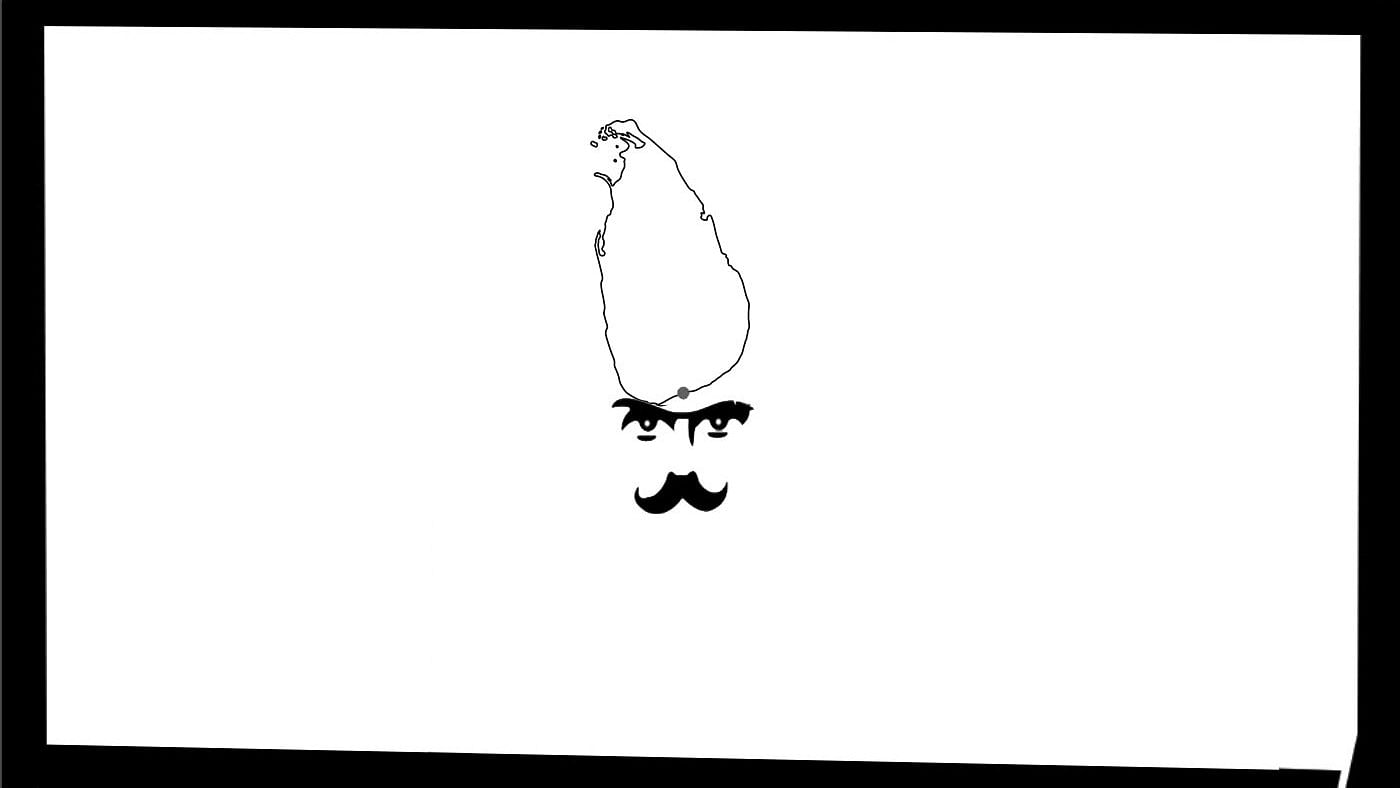
Credit: DH Illustration
It is well known that Anura Kumara Dissanayake, the new president of Sri Lanka, is a staunch leftist nationalist. He subscribes to the Sinhala-majoritarian ideology of ‘one nation, one language, one culture,’ leaving the minority Tamils to continue struggling for their living space and basic rights to preserve their cultural identities.
During his election campaign, while speaking in Jaffna, the historical cultural capital of the Tamils, Dissanayake made it very clear that he was neither there to seek Tamil votes nor propose federalism or offer a political solution but to preserve the identity of Sri Lanka on every inch of its soil and urged the Tamils to join the mainstream Sinhala nation. His call for all Tamils to learn the Sinhala language reiterates a reinforcement of the Sinhala Only Act of 1956, which was one of the main triggers of the unresolved ethnic problem in Sri Lanka.
Dissanayake represents the Janata Vimukti Peramuna (JVP), a Sinhala chauvinist Buddhist party that was against the India proposed Indo-Sri Lankan accord of 1987, which offered a minimal solution to the Tamils issue through the 13th Amendment to the Sri Lankan Constitution.
The amendment, passed in 1987, established Provincial Councils, unified the Tamil-dominated North and Eastern Provinces as one unit, and recognised Tamil as an official language and Tamils as a nation along with recognising English as a link language. The amendment also granted police power to the provinces, where in police could be appointed and administered at the provincial level. Even to this day, over 98% of police in Sri Lanka are Sinhalese, and the military remains almost exclusively Sinhala.
The JVP had publicly burnt the 13th Amendment. After the withdrawal of the Indian Peace Keeping Force in 1990, the 13th Amendment faded in relevance. India continues to call for its reimplementation, and moderate Tamil leaders of Sri Lanka have supported the Indian stand urging Sri Lanka to implement the 13th Amendment as the first step towards not just seeking a political solution but also reconciliation between the Tamils and Sinhalese. Former President Mahinda Rajapakse, who ended the brutal war, had repeatedly assured India that he would go a step further and implement “13+ of the amendment, which would bring about more federalism in the country.”
Dissanayake’s party has consistently opposed any devolution of power to the Tamils or a federal structure. The JVP has also been supporting the militarisation of the Tamil areas and opposing any form of international investigations of the brutal massacre of the Tamils during the last stages of the Sri Lankan civil war. The UN recognises the killing of at least 40,000 Tamil civilians, and civil society is still seeking accountability for missing 146,679 civilians during May 2009.
The new President has often stated that he will not support the UN accountability mechanism, which seeks to prosecute military personnel involved in war crimes and crimes against humanity committed against the Tamils. While the international community, especially the West, has been firm in calling for the setting up of an independent mechanism to seek truth and then search for reconciliation as per international standards, the Sri Lankan leaders have repeatedly stalled any such efforts.
For more than 15 years, Sri Lankan leaders have sought time from the UN and never implemented any of the accountability seeking mechanisms. The president’s party has mocked UN resolutions passed against Sri Lanka since 2011. The hopes of the Tamils to seek justice for the atrocities committed against them hinge on the implementation of these resolutions.
Despite his close ties with China, Dissanayake’s first official visit will be to India, which has provided significant economic support to Sri Lanka. The Tamils of the North and East have always looked up to India to bring about a political solution, which has eluded the island nation.
The most affected by the hardcore stand of the successive Sinhala leaders since 1983 are the Tamil refugees living in the 108 refugee camps of Tamil Nadu. Yet again, they would be disappointed that they have a hardliner as their president. Their dreams of waiting to return home after four decades have to be shelved for now.
Land grabbing and the colonisation of land belonging to Tamils have been rampant in Tamil-dominated areas of Sri Lanka. The previous regimes of Mahinda Rajapaksa gave five acres of land to Sinhalese willing to settle in the Tamil areas of the north, and Dissanayake, then a minister, was a vocal supporter of this scheme. Fear has once again gripped the North and East following the new president’s statement that one party or one man cannot resolve this ethnic issue.
The Tamils hope that the new President will rise above his hardline stance and treat them with dignity, respecting their rights and working towards rendering justice and accountability as outlined by the UN for all that they have suffered for decades. India, too, will hope the same as the unresolved Tamil issue of Sri Lanka remains a bitter memory for both Tamils and India.
History has given a chance to Dissanayake, the son of an ordinary government worker from a rural area without any political background so essential in Sri Lankan politics, to rise to the highest position in the country. He could use this opportunity to do what none of his predecessors have done and prove that power can be used for the right purposes, as he has mentioned all along when speaking about the corruption and nepotism of the Rajapaksa family. By initiating a dialogue with the Tamils, he could not only win over the Tamils but also improve relations with India, the international community, and the UN. In doing so, he could bring in a refreshing change to the island nation that has been in deep turmoil since 1981.
(The writer is the principal of St Joseph’s Evening College (autonomous) and an associate professor at St Joseph’s University)